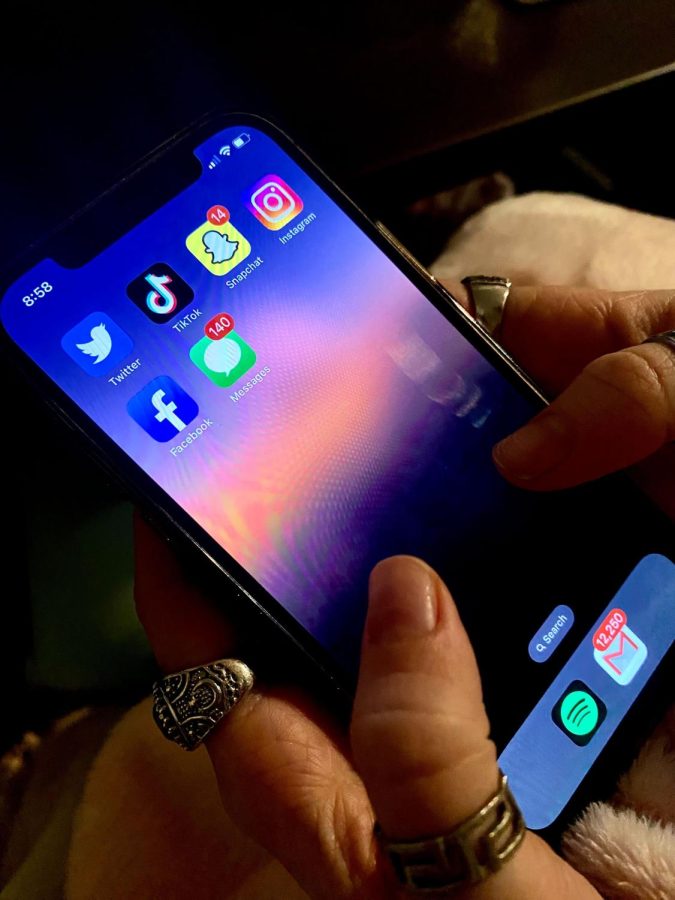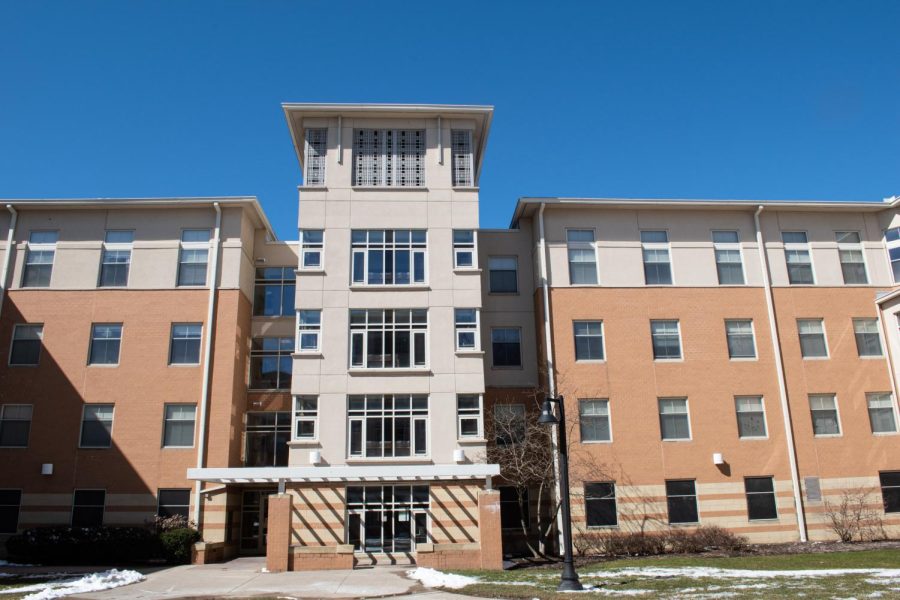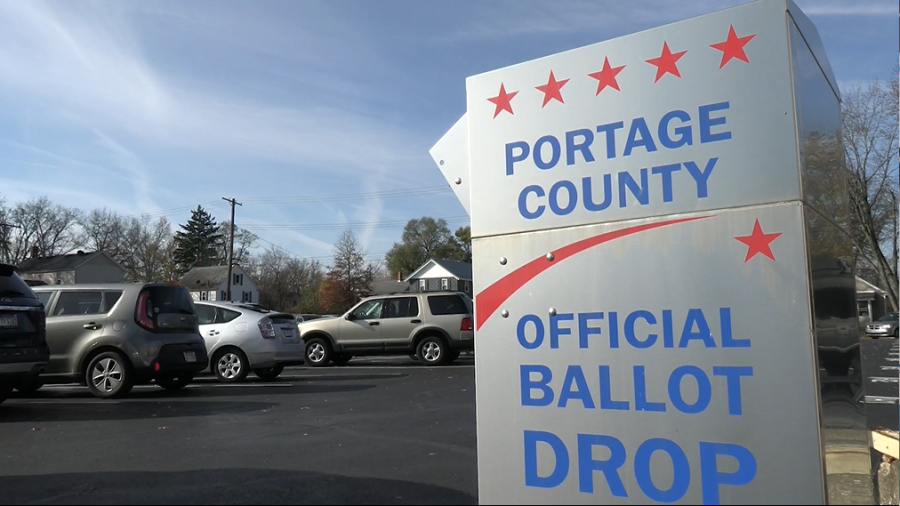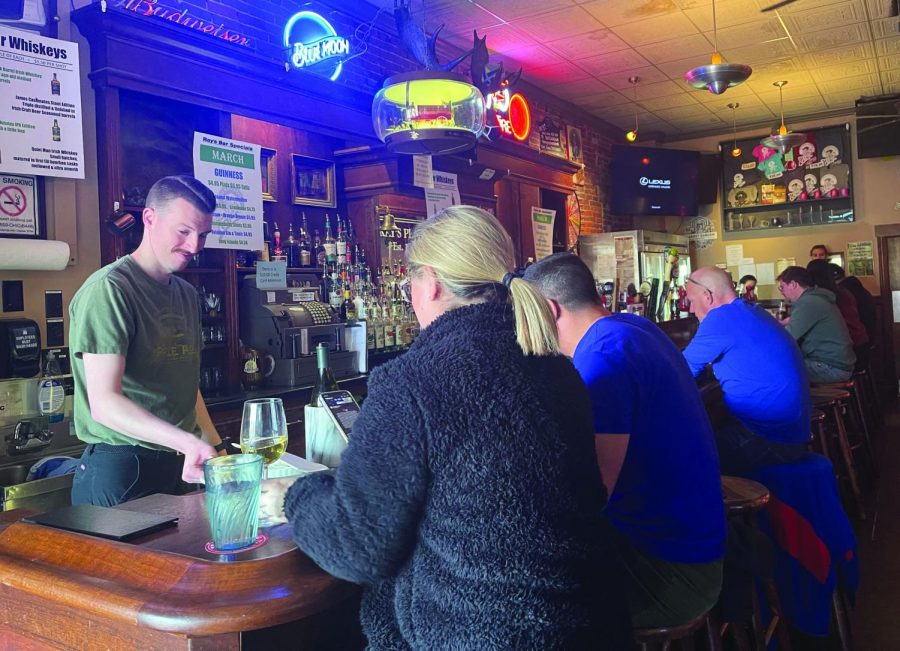While social media can connect friends and family, it can also lead to a multitude of mental health problems when used for prolonged periods of time.
Excessive social media usage has been linked to causing anxiety, depression and low-self esteem. According to a YaleMedicine article, these harmful effects are amplified in adolescents and teens.
“I tell myself, ‘Oh, I’ll be on social media for like 30 minutes, but it ends up being like an hour or two hours,’” said Jacoby Flynn, a sophomore marketing major. “You can compare yourself a lot on social media, and it could be a negative influence.”
Flynn spends about nine hours a day on social media platforms such as Snapchat, Pinterest and TikTok. Flynn recently deleted Instagram because she felt like everything she viewed wasn’t important.
“I don’t really care about what people post because it’s just posting pictures of themselves,” she said. “I don’t really need to see that.”
There are millions of teens just like Flynn who spend a large portion of their time on social media which can influence possible mental health effects. Josh Perkins, the assistant dean of students and the director of the CARES Center, said individuals tend to show signs of problematic social media usage when their use rate becomes disruptive.

“How long can you sit without flipping that phone? Can you study for 20 minutes without picking up your phone?” Perkins said. “If you are reliant upon social media, there needs to be a pause to think about your relationship with it.”
Similarly to what Flynn mentioned, Perkins said social media can create an unrealistic world for individuals that others may compare themselves too. This can then cause feelings of jealousy and lesser self-worth.
“‘I wish I were them; I wish I had that,’” Perkins said. “We can narrate and curate our lives to look a certain way to present to everyone else when in reality inside we’re struggling.”
Perkins added that extensive social media usage can affect daily activities, such as the ability to concentrate and focus, stay productive and get enough sleep. He also said a long-term consequence could be thoughts and feelings related to suicide.
Earlier this year, New York City Mayor Eric Adams declared social media a “public health hazard” due to its negative mental health effects on youth. In March, a Connecticut teen filed a lawsuit against popular social media platforms such as TikTok and Instagram for pushing negative body image and diet-related content that caused her to develop an eating disorder.
There are multiple solutions to cut back on and come to terms with prolonged social media usage. Perkins said the most effective are counseling, keeping yourself busy, setting time limits and, most importantly, reflecting with others.
“Asking those you trust their valuable opinion of ‘Do you think I’m on my phone a lot?’” Perkins said.
Ultimately, social media can be a useful and positive tool when it’s used in healthy instances, but Perkins said it comes down to finding that perfect balance.
“If you’re unable to do your homework because you’re spending too much time on social media, that’s an imbalance,” Perkins said. “If you’re not connecting with people in a healthy way because of social media, that’s an imbalance. Finding ways to balance back is really important.”
John Engoglia is a reporter. Contact him at [email protected].








